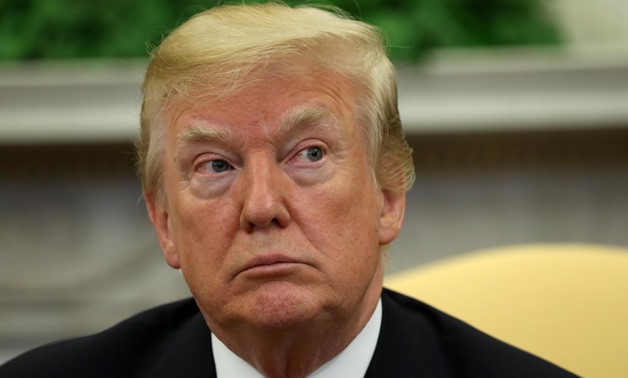
U.S. President Donald Trump look on as he welcomes South Korea's President Moon Jae-In in the Oval Office of the White House in Washington, U.S., May 22, 2018. REUTERS/Kevin Lamarque
WASHINGTON - 23 May 2018: The U.S. House of Representatives passed on Tuesday bipartisan legislation that would ease bank rules introduced in the wake of the 2007-2009 financial crisis, giving President Donald Trump a major legislative victory.
Tuesday's vote rolls back some of the 2010 Dodd-Frank rules that restricted operations by smaller banks and community lenders and keeps the Republican president's campaign promise to try to spur more economic growth by cutting regulation.
The bill, which was approved by the Senate in March, marks the first significant rewrite of U.S. financial rules introduced following the crisis, which saw Wall Street lenders bailed out to the tune of $700 billion.
Republican critics say Dodd-Frank went too far and curbs banks’ ability to lend, while many Democrats say it provides critical protections for consumers and taxpayers.
The bill, approved 258-159, raises the threshold at which banks are considered systemically risky and subject to stricter oversight to $250 billion from $50 billion. It also eases trading, lending and capital rules for banks with less than $10 billion in assets.
It does not, however, weaken the top U.S. consumer watchdog created by Dodd-Frank that has been consistently attacked by Republicans who say it oversteps its mandate.
But the bill does offer a handful of niche provisions that would help some larger banks, such as allowing custody banks like BNY Mellon and State Street Corp to exempt the customer deposits they place with central banks from a stringent capital calculation requirement.
It also offers more favorable treatment for municipal bonds, a measure that analysts say is likely to help Citigroup Inc's bond-trading business.
But backers of the bill stress that the core Dodd Frank provisions that aimed to shore up the financial system and make banks less risky, remain untouched by this legislation.
The bill also does not alter the so-called "Volcker Rule" banning Wall Street banks from making risky bets with their own money, or limit the ability of regulators to apply stricter rules to large institutions they deem critical to the financial system.

Comments
Leave a Comment